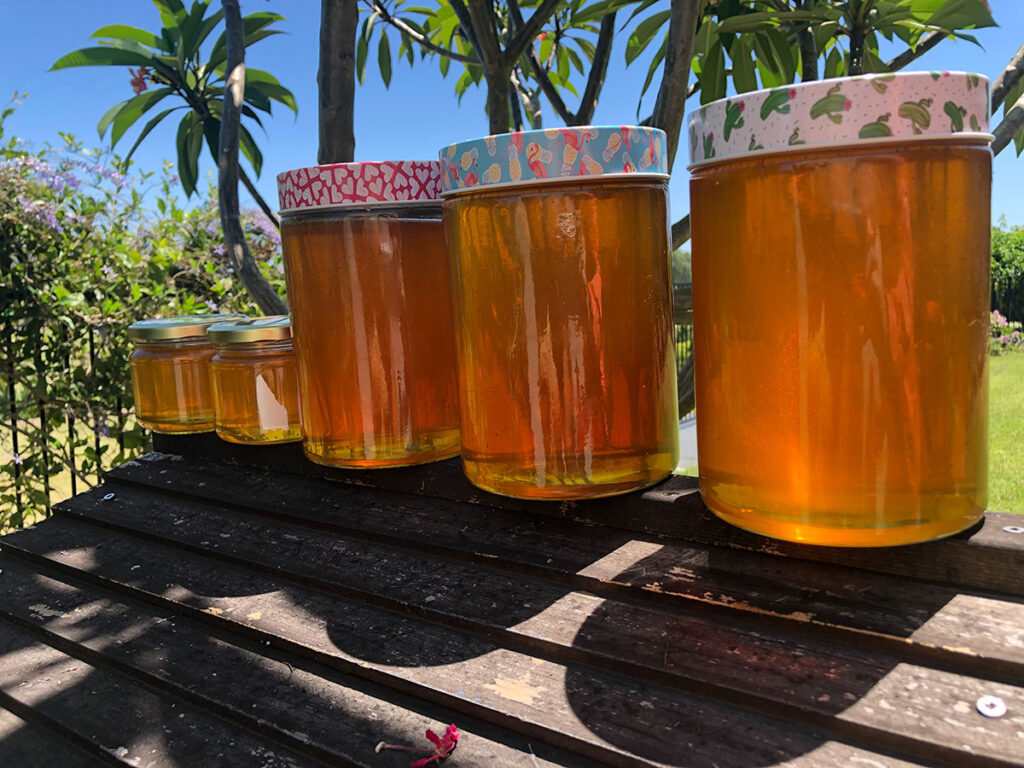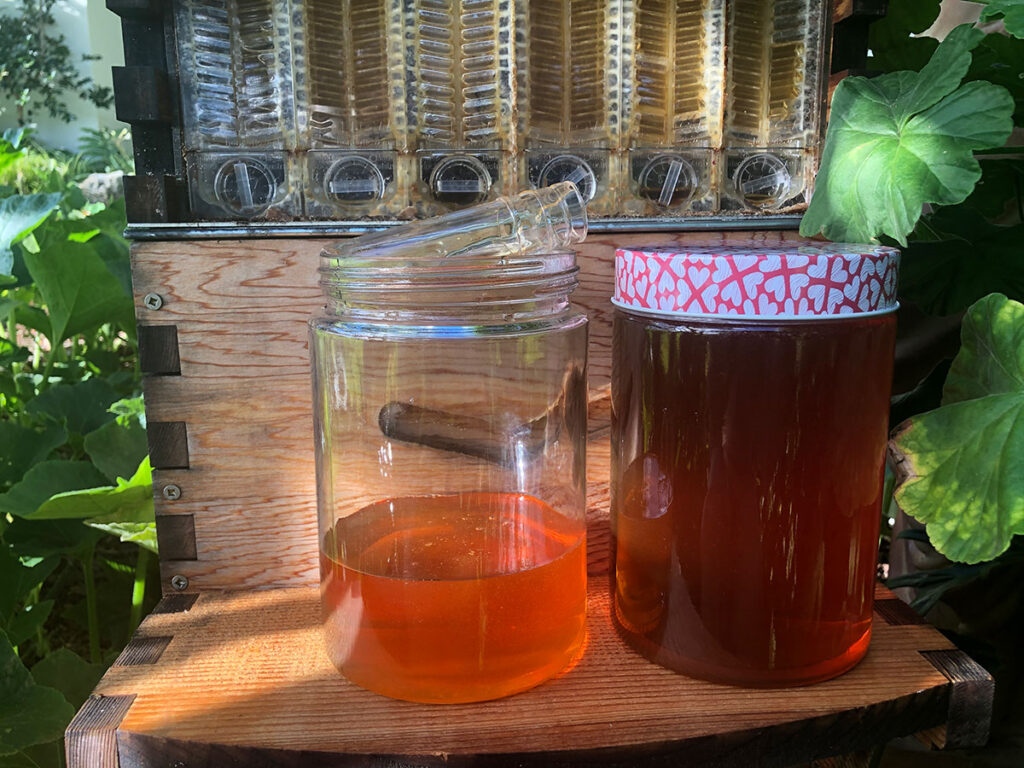Some Sweet Facts About Honey
You already know how much I love my bess, well, I love what they produce just as much! Honey, beautiful, delicious, nuritrous honey.
I wanted to share some interesting facts in this month’s Honey Pot Stories from the Hive which you may not be aware of. I certainly was not, until I did a bit of net surfing recently.
May I recommend you take a few minutes to make yourself a nice pot of honey tea and be intrigued by these little insects and what they are capable of.
Interesting Facts
Honey helps to stimulate the production of immune cells in the body and with more stronger immune cells the healthier we are! For an extra punch of immune building activity add ginger and lemon to your honey tea.
Honey is one of the few foods known to have an eternal shelf life. There are even reports of edible honey being found in several thousand year old Egyptican tombs. Honey is naturally acidic and low in moisture, making it an inhospitable environment for bacteria; this is attributed to honey’s longevity.
There is evidence of honey being prescribed as a medical treatment dating back as far as ancient Mesopotamia because of it being so inhospitable to bacteria. It was often used as a natural bandage to protect cuts and burns from infection. Today, honey is still used as a natural treatment for stomach ulcers, dandruff and even seasonal allergies.
In 11th century Germany, honey was so highly valued for its beer sweetening abilities that German feudal lords required their peasants to make them payment of honey and beeswax.


Around 130 million years ago, flowering plants first appeared and a few million years later, bees began separating from wasps. At some point after that, bees began producing honey, with one fossilized honeycomb dating from around 3 millions years ago. Humans have been harvesting the sweet stuff for thousands of years. An ancient cave painting was discovered in Valencia, Spain, that depicts a human figure removing honey from a hive and it could date from as far back as 15,000 years ago.
Raw or Unprocessed honey comes straight out of the beehive. It is unheated, unpasteurized and unprocessed so that all the vitamins, minerals and enzymes are intact (enzymes are important for digestion). Raw honey tends to be thicker, cloudier and is brimming with goodness.
Honey’s depth of flavour is determined by the source of the nectar it was from. The darkness or lightness of certain honey varies as well.
Honey is good for your teeth! Unprocessed (raw) honey actually protects against tooth decay. It reduces the amount of acid produced by bacteria in the mouth which is responsible for dental decay…Next time you have a teaspoon of honey you can smile with confidence!
For more info https://goodparentingbrighterchildren.com/benefits-of-honey/




